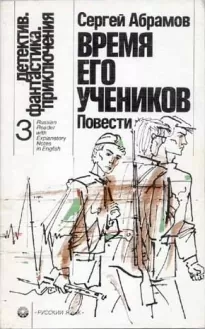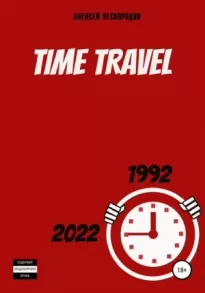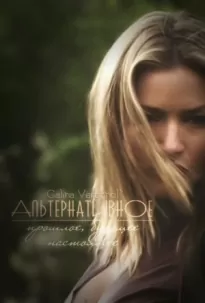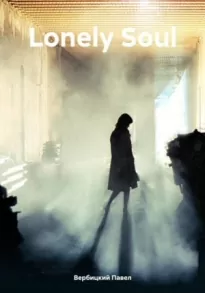Разговорный английский
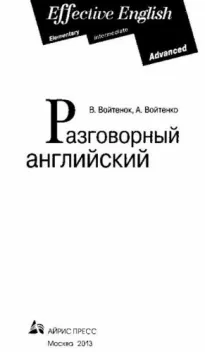
- Автор: Владимир Войтенок
- Жанр: Самиздат, сетевая литература
Читать книгу "Разговорный английский"
2. ON ENGLISH CLIMATE
The climate of England is milder than that of other countries. English people are apt to complain of it as being damp and rainy,
and foreigners laugh at it and say, that the English summer is made up of three fine days and a thunderstorm.
It is hard to say that England has typical weather because of the sudden changes that occur — showers from what was only a few hours before a clear blue sky; sunshine that makes you want to leave off most of your clothes followed by winds that set you wishing for two overcoats.
The winter fogs of London are, indeed, awful; they surpass all imagination. In a fog the air is hardly fit for breathing; it is grey, yellow, of deep orange, and even black because of the smoke of many thousands of chimneys. In a dense fog all traffic is stopped, no vehicle can move from fear of dreadful accidents.
The three things that chiefly determine the climate of England are: (1) the position of the island in the temperate belt; (2) the fact that the prevailing winds blow from the west and south-west; (3) the warm current — the Gulf Stream that flows from the Gulf of Mexico along the western shores of England.
All this combined makes the climate more moderate — that is, the winters warmer and the summer cooler. The winters are never cold enough to freeze the rivers and the summers are seldom hot.
The plentiful rainfall enables agriculture and the rearing of cows, sheep, etc., to be carried on successfully whenever the soil is suitable. In wet, warm regions grass grows best, and we find most of the cattle-rearing and dairy-farming in the rich pastures of the plain lands of South-West England, the cities of which are noted for their cheese, cream, and butter.
Sheep can be reared where grass is not good enough for cattle and so we find them on the steep hillsides of the west. Pigs are bred in most parts of England, especially in the eastern countries of England.
But while the moist lands of the west are most suitable for grass, the drier east with its hot summers is better for the growing of cereals generally, and wheat in particular, which needs a hot summer and a dry autumn to ripen.
The principal cereal crop, however, is oats. Oats are used for feeding horses and for making oatmeal for porridge. After cereals root and green crops are the most important cultivated plants, the principal of which are potatoes.
Large quantities, too, of turnips, carrots, cabbages, etc., are grown, and a considerable sugar-beet industry has been developed, especially in East Anglia and Scotland.
We must not forget, too, the growing of fruit. There are few leveller sights than the cherry orchards of Kent or the apple, pear and plum blossom of Hereford, Devon and Somerset in early spring. There are,
too, valuable quantities of “soft” fruits, raspberries, strawberries, etc., grown, and the jam-making and fruit-preserving industries that have grown up in these districts are important.
Finally, in discussing the harvests of the country we must not forget “the silver harvest of the sea,” its fisheries. The east coast fisheries are the most valuable, and three quarters of the fish landed in England come from there.
Adapted from “Essential English for Foreign Students”by G. E. Eckersley
3. TIME
A year is the average time it takes for the earth to go once round the sun. There are 12 months or 52 weeks or 365 days in a year. Every four years there is a leap year. This has 366 days. We all know the names of the months, but not all of us can quite remember how many days there are in each month. Here is a little poem that will help us in that respect.
Thirty days has September, April, June and November. All the rest have thirty-one, Excepting February alone, Which has but twenty-eight days clear, And twenty-nine in each leap year.
There are 7 days in a week, 24 hours in a day, 60 minutes in an hour and 60 seconds in a minute.
The sun rises in the east in the morning. The beginning of the day is daybreak or dawn. Then comes morning, noon, afternoon, evening and night. We tell the time by means of watches and clocks. Watches are small. We might carry them either in our pockets or wear them on our wrists. The former are called pocket watches and the latter — wrist watches.
A clock is bigger than a watch; it usually stands on the table or hangs on the wall in the house. There are figures on the face of the clock or watch to mark the hours, minutes and seconds. The hands of the clock or watch point to the figures telling us the time.
There are three hands altogether. The biggest hand shows the minutes, the smaller — the hours, and the smallest — the seconds.
Adapted from “Essential English for Foreign Students ” by G. E. Eckersley
4. THE WATCH
G. What time is it by your watch, Tom?
T. What time? Well, it’s ... it’s 5 minutes past 4.
G. Five past four?
T. Yes. What surprises you? And what time do you make it?
G. Well, by my watch it is 5 to 4. Either your watch is fast or mine is slow.
T. Yours is slow, of course. Didn’t you hear the tower clock strike four a few minutes ago?
G. No.
T. My watch is right on the dot. I checked the time by radio this morning.
G. I just wonder what could have happened to my watch. It was such a good time-keeper.
T. Perhaps it needs winding up?
G. Think so? Well, it might be. I can’t quite recollect whether I wound it up this morning.
T. Well?
G. No, it doesn’t seem to be run down. There’s something wrong with it, after all.
T. Well, let’s drop in at a watchmaker’s. There’s one at the comer of N. and M. Streets.
G. Do you think we have time?
T. Why, yes! It won’t take him long to “diagnose the case.”
G. I hate taking my watch to the watchmaker, but nothing can be done, I suppose.
T. Why don’t you like to deal with watchmaker’s?
G. Well, it might be a kind of prejudice but I can’t help feeling that my favourite watch will never keep good time any more.
T. Nonsense! Get it out of your head. Well, here we are.
G. Good afternoon, sir.
WATCH
MAKER. Good afternoon, gentlemen. What can I do for you?
G. I would like you to have a look at my watch. There’s something wrong with it.
W. Let me see it, please.
G. Yes. What a nuisance these straps are. Here it is, please.
W. Nothing much the matter with it. Needs cleaning, that’s all.
G. Yes? How long will it take to have it cleaned?
W. Well, a couple of days, I suppose. Will you leave it?
G. I think I will.
W. Your name, please.
G. Hamilton. George Hamilton.
W. {giving the receipt). Here you are, sir.
G. Thank you. Goodbye.
CONTENTS
ОГЛАВЛЕНИЕ
Предисловие 3
PART ONE
I. Man and His Famil y 7
1. Name 7
2. Age 8
3. Origin and Nationality.... 10
4. Appearance 10
5. Character 16
6. Language 17
7. Marriage 19
8. Family 20
II. Meeting People 22
1. Forms of Address 22
2. Some Possible Answers to
Greeting 24
3. Remarks about the Weather 27
4. Remarks about the Appearance 27
5. When People Meet They May Say 28
6. Acquaintance 29
a) Introducing People.... 29
b) Recognition 31
c) Degree of Acquaintance 32
d) Breaking off an Acquaintance 33
7. Visit 34
a) Invitation to Come... 34
b) Bell 35
c) Receiving Guests 35
d) At Home 36
e) Leaving 37
f) Seeing One Out 39
g) Not at Home 39
8. Appointment 40
9. Congratulations 41
10. Thanks 42
11. Apology 43
12. Conversation 45
III. Education 48
1. Elementary and Secondary School 48
a) General 48
b) Classes 49
c) Behavior 51
I. Человек и его семья 7
1. Имя 7
2. Возраст 8
3. Происхождение и национальность 10
4. Внешность 10
5. Характер 16
6. Язык 17
7. Женитьба 19
8. Семья 20
II. Общение с людьми 22
1. Формы обращения 22
2. Некоторые возможные ответы на приветствия .. 24
3. Замечания о погоде 27
4. Замечания о внешности. 27
5. При встрече люди говорят 28
6. Знакомство 29
а) Представление 29
б) Узнавание 31
в) Степень знакомства.. 32 г) Прекращение знаком
ства 33
7. Визит 34
а) Приглашение 34
б) Звонок 35
в) Прием гостей 35
г) Дома 36
д) Уход 37
е) Провожание 39
ж) Отсутствие дома 39
8. Свидание 40
9. Поздравления 41
10. Благодарность 42
11. Извинение 43
12. Беседа 45
III. Образование 48
1. Начальная и средняя школа 48
а) Общая часть 48
б) На уроках 49
в) Поведение 51
d) At the Blackboard .... 52
e) Mistakes 52
f) Encouraging and Punishing a Pupil 53
g) Reading 53
h) Pronunciation. Spelling 54
i) Translation 55
j) Writing 55
k) Grammar 56
1) Homework 57
m) Mathematics 58
2. Higher School 64
a) Studies 64
b) Entering the Institute. 64
c) Course. Subjects 65
d) Lectures 66
e) Graduation 67
f) Teacher 67
g) Examination 68
h) Marks 70
3. Aptitude 70
4. Inaptitude 71
5. Memory 72
6. Books 73
IV. Work 78
1. General 78
2. Discharge 80
3. Out of Work 80
4. Ability and Inability. Being Busy 80
5. Earnings 81
V. Health 83
1. You Have to See the Doctor 83
2. Diagnosing the Case 84
3. Complaints 87
4. Toothache 88
5. Headache 89
6. At the Eye Specialist 89
7. Ear-ache 90
8. Names of Diseases and Illnesses 91
9. Temperature 91
10. Pain 92
11. Bedridden 93
12. Medicines and Treatment. 93
13. Diet 96
14. Getting Worse 96
г) У доски 52
д) Ошибки 52
е) Поощрение и наказание ученика 53
ж) Чтение 53
з) Произношение. Орфография 54
и) Перевод 55
к) Письмо 55
л) Грамматика 56
м) Домашние задания... 57
н) Математика 58
2. Высшая школа 64
а) Занятия 64
б) Поступление в институт 64
с) Курс. Дисциплины... 65
в) Лекции 66
д) Окончание института 67
е) Преподаватель 67
д) Экзамены 68
з) Отметки 70
3. Способности 70
4. Отсутствие способностей 71
5. Память 72
6. Книги 73
IV. Работа 78
1. Общая часть 78
2. Увольнение 80
3. Без работы 80
4. Способности и отсутст
вие способностей. Труд. 80
5. Заработки 81
V. Здоровье 83
1. Вам нужно побывать у врача 83
2. Установление диагноза .. 84
3. Жалобы 87
4. Зубная боль 88
5. Головндя боль 89
6. У врача по глазным болезням 89
7. Ушная боль 90
8. Название болезней и недугов 91
9. Температура 91
10. Боль 92
11. Постельный режим 93
12. Лекарства и лечение.... 93
13. Диета 96
14. Ухудшение 96
15. Death 97
16. Recovery 98
17. Fatigue 99
18. Sleep 99
VI. At Home 101
1. House 101
2. Premises and Outhouse... 104
3. Condition of a House.... 106
4. Room 106
5. Lamp and Light 108
6. Heating System 109
7. Water Supply 109
8. Gas 110
9. Stove Ill
10. Furniture 112
a) Hall 113
b) Sitting-room 113
c) Bedroom 113
d) Dining-room 114
e) Study 114
f) Nursery 114
g) Kitchen and Cooking Utensils 114
h) Bed 115
i) Table 115
j) Chair 115
11. Miscellanea 116
a) Bedding 116
b) Household Linen 116
c) Carpet, Rug, and Mat 117
d) Curtains and Blinds... 117
12. Renting 118
13. Housekeeping 119
VII. Meals and Cooking 122
1. Restaurant 122
a) Giving Orders 122
b) Some Possible Questions and Answers of the Waiter 124
c) Setting the Bill 125
2. At Table 125
a) Request 125
b) Offer 126
c) Possible Answers 126
d) After Meals 127
15. Смерть 97
16. Выздоровление 98
17. Усталость 99
18. Сон 99
VI. Дома 101
1. Дом 101
2. Прилегающая к дому территория и надворные постройки 104
3. Состояние дома 106
4. Комната 106
5. Лампа и освещение 108
6. Отопление 109
7. Водоснабжение 109
8. Газ ПО
9. Печь 111
10. Мебель 112
а) Прихожая 113
б) Гостиная 113
в) Спальня 113
г) Столовая 114
д) Рабочий кабинет 114
е) Детская 114
ж) Кухня и кухонная посуда 114
з) Кровать 115
и) Стол 115
к) Стул 115
11. Разное 116
а) Постельные принадлежности 116
б) Столовое белье 116
в) Ковер, коврик и половик 117
г) Занавески и шторы.. 117
12. Наем жилья 118
13. Ведение домашнего хозяйства 119
VII. Еда и приготовление пищи 122
1. Ресторан 122
а) Заказ 122
б) Некоторые возможные вопросы и ответы официанта 124
